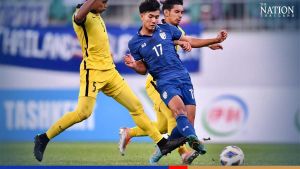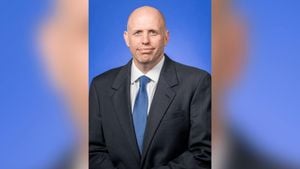Sangbu, South Korea, has found itself at the center of significant scrutiny as local authorities launch investigations targeting esports teams with overwhelming allegations of misconduct. What started as concerns surrounding competitive integrity has morphed, showcasing the broader societal challenges influencing youth engagement within the esports community.
City officials have taken decisive steps to address these issues, aiming to balance competitive fairness with the educational standards expected from student participants. According to Mayor Kim Jisoo, "The rise of esports reflects larger societal trends affecting youth engagement," which highlights the depth of the situation beyond mere gameplay. The issue is not just about the matches but also involves pivotal concerns over educational integrity.
Since initiating these investigations earlier this year, local law enforcement collaborated with educational and gaming organizations to thoroughly assess the current state of esports within Sangbu. Such collaborations aim to weed out corruption and misconduct, showcasing how deeply embedded the problem is. Park Sangho, head of the local esports federation, reiterated the importance of maintaining fair play, stating, "We are committed to providing fair play and education for all students involved." His comments underpin the federation's dedication to safeguarding the interests of players and upholding the principles of honest competition.
These investigations have already highlighted troubling patterns. Features of student life are now coming under the microscope as officials noted concerning behaviors fueled by the pressures of competition and external influences. Not only does this encapsulate the unhealthy dynamics at play among esports teams, but it also speaks volumes about the need for systemic change within educational frameworks.
Further supporting this initiative, local educators like Lee Hyejin, who serves as an educational consultant, commented on the drafts of new policies already taking shape within the community. "These findings will help reshape future policies to protect our youth," she asserted, emphasizing the community's aspiration for comprehensive reform.
Arrests have been made, and numerous charges filed, showcasing the aggressive stance taken by authorities to root out any form of cheating or misconduct. The focus remains not merely on punishment but on creating lasting solutions to any arising issues within the teams. This is particularly important considering the surge of interest and participation among the youth within esports, often seen as not just games, but gateways to potential careers.
The urgency of these investigations underlines their importance to the community as local organizations work diligently to promote the integrity of esports. Instances of cheating or non-compliance can mar reputations and damage the careers of promising players, which has put increased pressure on officials to act decisively. Parents and educators alike are concerned about the direction esports is taking, prompting this call to action.
While youths continue to engage passionately with esports, the aim of these efforts is to cultivate environments where players thrive without the dangers of cheating hanging over their heads. The duality of competition and education should coexist harmoniously, ensuring young players can excel without compromising their morals.
Looking forward, the community is eager to see the outcomes of these investigations and welcomes the changes they promise. The collective goal remains clear: to nurture talent and coach young players not just as competitors but as responsible individuals capable of making ethical decisions both on and off the esports stage.
With the conviction rate being reported as 100%, these investigations are setting precedents, establishing benchmarks not only for Sangbu but potentially for other communities observing how these challenges are handled. The future of esports may depend on the conclusions drawn here and the reforms put forth as these matters undergo judicial scrutiny.
Many local stakeholders trust these efforts will not only reinforce the integrity of esports but also contribute positively to the educational environment of the youth involved. The impact, they hope, will ripple through the community, fostering values of fair competition and moral responsibility.
Investigations like these are pivotal, echoing the community's commitment to securing the future of esports as both competitive sport and educational tool. Only time will tell how effectively these measures will reshape the relationships between students, the esports world, and their education.



